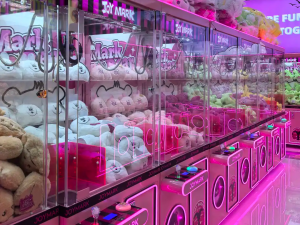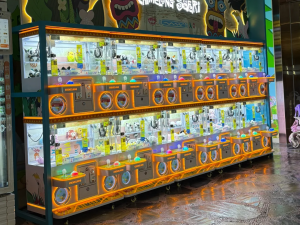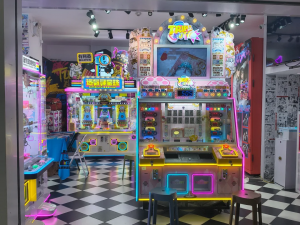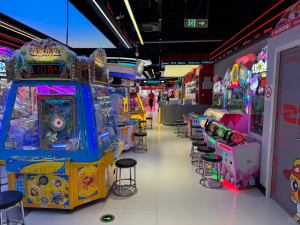Creating a mobile virtual reality theme park is an ambitious and exciting idea! Here’s a structured approach to help you develop it:
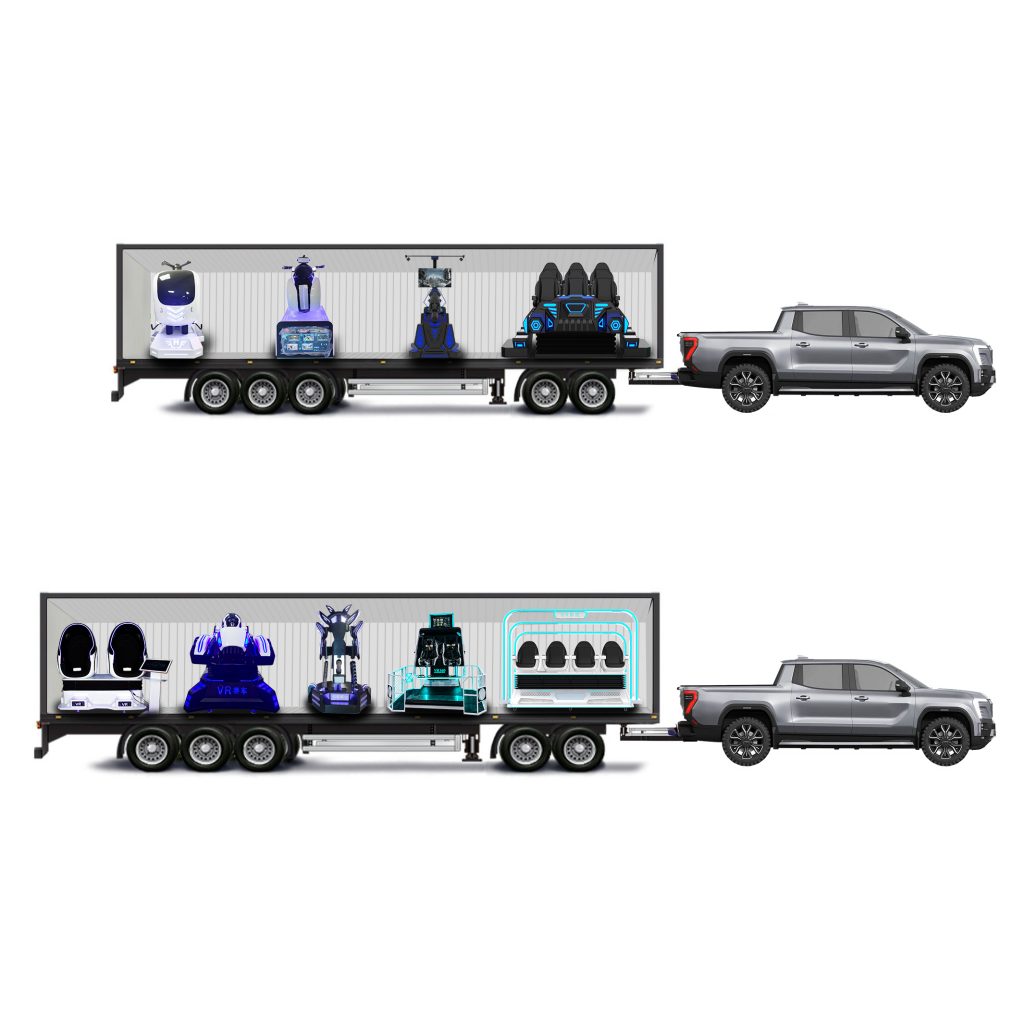
Concept Overview
Mobile VR Theme Park: A portable entertainment experience that combines various VR attractions, games, and immersive experiences, designed to be set up at events, festivals, or urban areas.
Steps to Create a Mobile VR Theme Park
1. Market Research
- Target Audience: Identify your primary customers—families, gamers, corporate events, schools, etc.
- Competitor Analysis: Study existing VR entertainment options and mobile amusement parks to understand market gaps and opportunities.
2. Business Plan
- Define Attractions: Decide on the types of VR experiences you want to offer (e.g., rides, games, educational simulations).
- Budgeting: Outline startup costs including VR equipment, transport, marketing, and operational expenses.
- Revenue Model: Consider ticket sales, group packages, event rentals, and partnerships.
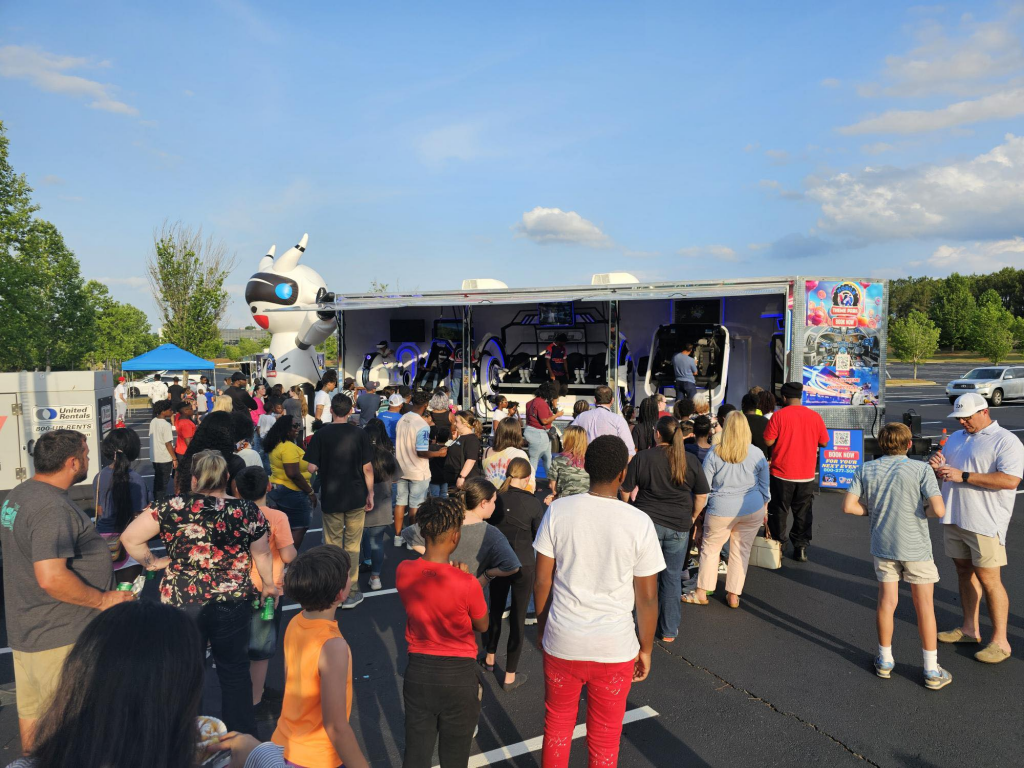
3. Legal Requirements
- Business Registration: Choose a name and structure (LLC, corporation) and register your business.
- Permits and Licenses: Research local regulations for operating mobile entertainment and secure necessary permits.
- Insurance: Obtain liability insurance to protect against accidents or damages.
4. Equipment Acquisition
- VR Machine: Invest in high-quality VR headsets, motion tracking systems, and compatible PCs or consoles.
- Attraction Setup: Create or purchase VR experiences, such as simulators, escape rooms, or interactive games.
- Mobile Setup: Design a trailer or modular setup that can be easily transported and assembled at different locations.
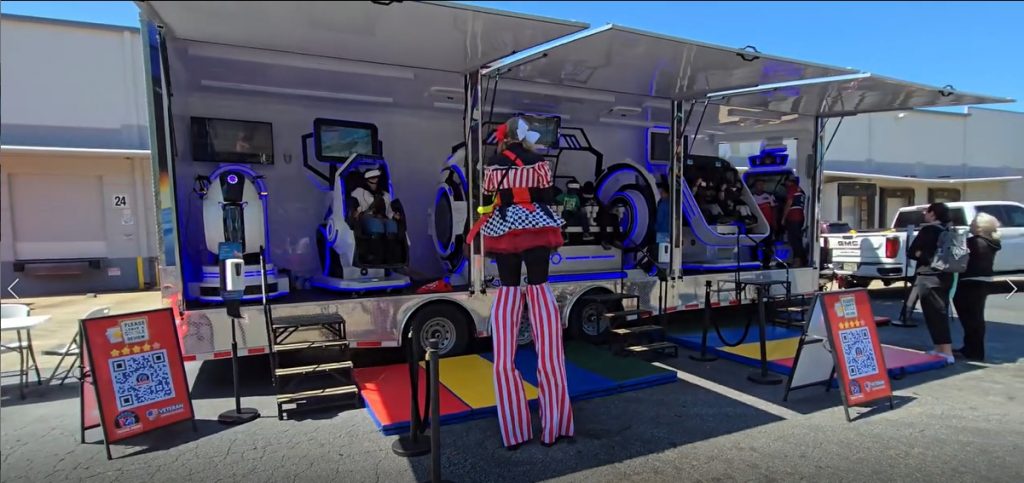
5. Branding and Marketing
- Brand Identity: Develop a strong brand name, logo, and marketing materials that reflect the excitement of VR experiences.
- Website and Social Media: Create a professional website and establish a social media presence to promote events and bookings.
- Promotions: Consider partnerships with local businesses or events for joint promotions.
6. Logistics and Operations
- Scheduling: Set up a booking system for events and manage your calendar effectively.
- Staffing: Hire knowledgeable staff to assist with setup, operations, and customer service during events.
- Maintenance: Regularly maintain and update VR game equipment to ensure a safe and high-quality experience.
7. Launch and Events
- Soft Launch: Consider testing your setup at a local event to gather feedback and refine operations.
- Community Engagement: Participate in community events and festivals to build awareness and attract customers.
- Customer Experience: Focus on providing an immersive and enjoyable experience to encourage repeat business.
8. Monitor and Adapt
- Feedback Collection: Gather customer feedback to improve offerings and address any concerns.
- Stay Current: Keep up with VR technology trends and continually update your experiences to remain competitive.
Additional Tips
- Safety First: Ensure all equipment is safe and that staff are trained in handling VR setups.
- Dynamic Experiences: Consider offering a rotating selection of experiences to keep returning customers engaged.
Creating a mobile VR theme park can be a thrilling venture that brings innovative entertainment to various locations. If you need more specific insights or help with any aspect, just contact BLEE.

